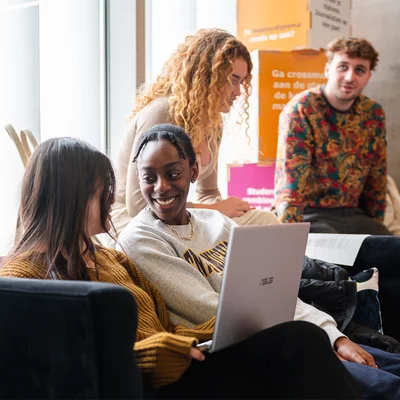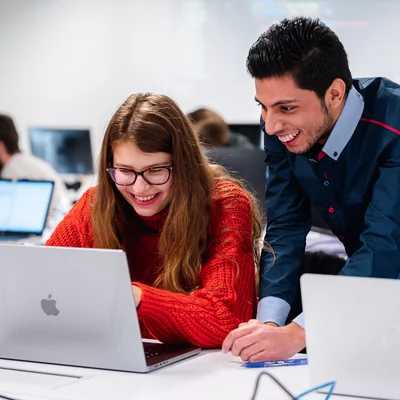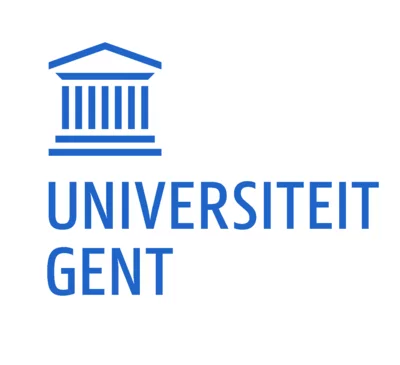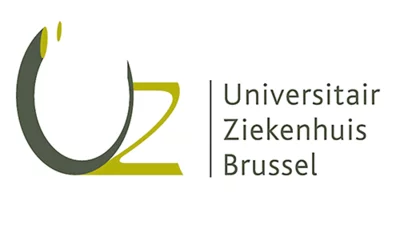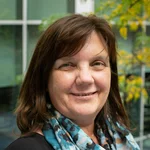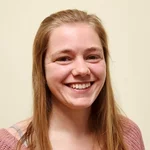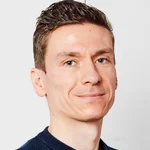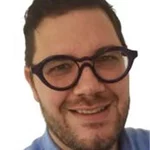
ACTIVE-AGE@home: a home-based functional exercise program for community-dwelling frail older adults
A lot of people experience acute or chronic conditions that reduce quality of life and self-reliance in later life. Physical activity can slow down or even reverse this vulnerability. In addition, it also promotes mental health and increases the chances of socialising. Unfortunately, due to many personal and environmental barriers, vulnerable people get little exercise. In this four-year project, we want to investigate the effectiveness and cost-effectiveness of a functional exercise programme for frail 70-plussers living at home.
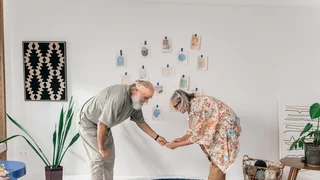
Functional exercise programme ACTIVE-AGE@home

The functional training programme ACTIVE-AGE@home developed by Artevelde University of Applied Sciences trains vulnerable people in their own home environment. The programme is made up of simple and functional exercises linked to activities of daily living such as climbing stairs, getting up from a chair and moving objects around the room.
Flanking the physical training, each participant's personal goals are also determined and a strong link is made to - for the participant - meaningful / meaningful activities.
What is the effectiveness of the exercise programme?
In this four-year project, we want to examine the effectiveness and cost-effectiveness of the training programme in two groups:
- One group is supervised by professionals for 24 weeks
- Another group is supervised for 24 weeks by trained volunteers/caregivers.
These two conditions will be compared with current standard care for frail people living at home through a pragmatic randomised controlled trial. A total of 192 frail over-70s will be recruited in this study. Each participant will receive pre-, post- and follow-up measurement of both physical, mental and social parameters.
Improving quality of life of elderly people
The ultimate goal of this research project is to improve the quality of life of the frail over-70s.
Partners
The training programme came about thanks to intensive cooperation between the Care and Health expert network and the Education expert network (Department of Physical Education and Movement Recreation) of Artevelde University of Applied Sciences. An extensive network of research institutions and work field partners ensured a widely supported and thoroughly thought-out intervention.
In the current phase, Artevelde University of Applied Sciences, VUB, UGent, UAntwerp, Odisee and UZ Brussel are collaborating in a four-year Applied Biomedical Research project (2022-2026), subsidised by the Fonds Wetenschappelijk Onderzoek - Vlaanderen.
Meet the team
Bio of the researchers
The consortium is composed by Prof. dr. Patricia De Vriendt (Artevelde University of Applied Sciences and Vrije Universiteit Brussel) as principal investigator, together with Prof dr Siddartha Lieten (University Hospital Brussels) in close collaboration with Prof. dr. David Beckwée (University Antwerp), Dhr. Dimitri Vrancken, Dr. Ine De Clerck, (University of Applied Science Artevelde), Prof. Dr. Dominique Van de Velde and Prof. dr. Lieven Annemans (Ghent University), and Dr. Wim Peersman (University of Applied Sciences Odisee).
Patricia De Vriendt
Patricia De Vriendt (H index 15) is occupational therapist, Gerontologist (MSc, PhD)) senior researcher at the Artevelde University of Applied Sciences and professor at the Vrije Universiteit Brussel (2012).
Her research focuses on early detection of dementia and the usefulness of the evaluation of the Activities of Daily Living, for which she received the Lundbeck Geriatric Medicine Grant (2010, 20K€) and was awarded by 3 scientific prizes: Best Poster Communication at the Congress of the Belgian Association of Gerontology and Geriatrics (2012), Best Poster Presentation of Psychogeriatrics (2012), Prize of the Psychogeriatric Foundation (2014, 20K€).
She was project lead of – among others - the Knowledge Innovation Center for Elderly Care’, financed by the Flemish agency for Innovation by Science and Technology, ‘Community based Occupational Therapy’, financed by the Government of East-Flanders, ‘Active Ageing in the nursing homes: promoting meaningful activities’, ‘Shared decision Making in dementia’, ‘Goal oriented Care’ and – which is in particular interesting for this project – the POC study ‘ACTIVE-AGE@home’. She is founding member of the Primary Care Academy. She has several publications in international peer-reviewed journals included in Web of Science (mostly as first and last author; highest IF Plos Medicine 11.862), one of the papers received the award ‘Paper of the Month’ and another the ‘Award of Excellence paper 2019’.
She is actively reaching out to society to disseminate the results of her research at governments and by publishing layman’s texts, papers, books etc. Therefor she published several national publications and (chapters in) books: she had >60 presentations in peer-reviewed, internationally established conferences (also as invited speaker). PDV can look back to a very broad clinical carrier in which she worked with older persons in a variety of settings in different positions, offering a broad network based on a long-standing collaboration with almost all the stakeholders involved in this project. She is also board member of the Belgian Association of Gerontology and Geriatrics. As from 2022 she was selected as a member of the Flemish society of Quality of Care (Vlaams Instituut Kwaliteit van Zorg).
Emma De Keyser
I aim to unravel the black box of exercise induced ADL improvements in frail older adults through a realist evaluation. I will investigate if and in which context (volunteer-led programs vs professional-led programs) cognition and loneliness serve as possible key mechanisms of exercise-induced ADL-improvements.
Understanding in which context and how physical exercise impacts ADL, cognition and loneliness may lay foundations for future targeted physical activity interventions to increase community-dwelling frail older adults’ ADL and QOL, which lowers health-care expenditure and use.
Jade Tambeur
Goal-oriented physical activity (PA) interventions, such as ACTIVE-AGE@home, emerge as a primary strategy to tackle frailty. Yet, the reluctance of frail older adults to engage in such interventions, influenced by numerous barriers, perpetuates their inactivity and leads to negative health outcomes. Therefore I aim to uncover strategies for motivating frail older adults to commit to PA programs and maintain their PA behavior after the intervention ends. The aim is to identify the principles that lead to effective physical activity interventions in frail older adults. Thereby, unravelling what works, for whom and in which circumstances. The exploration whether meaningful activities or self-management abilities could serve as one of the driving mechanisms in effective goal-oriented physical activity adds depth to this investigation.
Dimitri Vrancken
To respond to the intrapersonal and environmental barriers of frail older adults regarding physical activity and to reduce the cost of healthcare expenditures, local volunteers will be incorporated in the ACTIVE-AGE@home exercise program. In the ACTIVE-AGE@home study, the older adults are either trained by a professional trainer or a trained volunteer.
My first aim is to investigate the effects of the ACTIVE-AGE@home functional exercise program on functional capacity and Quality of Life of community dwelling frail older adults, when administered by trained volunteers. Second, I will explore the sustainability and cost-effectiveness of this intervention in regard to healthcare expenditures of the frail older adults, the healthcare system (government) and the adopting organizations or professionals.
Work with us?
Request customised research
We are happy to assist you with your research enquiries.
